India has been witnessing the growing phenomenon of the saffronisation of history. The erasure or alteration of parts of history to suit the whims of any class of idealogues, including Hindutva proponents, is a dubious exercise. It not only threatens our understanding of India’s pluralistic past but also makes any meaningful understanding of today’s multicultural, syncretic society impossible by withholding historical context by way of which to understand and appreciate this.
In the fourth revision since 2014, the National Council for Educational Research and Training (NCERT), has once again changed portions of textbooks in questionable ways.
The trend of history being distorted and diluted to fit Hindutva narratives is even more troubling when the avenues through which this saffronised history is funnelled are legitimate institutions that afford credibility to these distortions. In the fourth revision since 2014, the National Council for Educational Research and Training (NCERT), has once again changed portions of textbooks in questionable ways. The NCERT, an autonomous body under the Ministry of Education, is tasked with developing teaching resources such as textbooks. In the past, NCERT’s changes to textbooks, especially Social Science textbooks, have been controversial and the body has been accused of saffronisation.
NCERT revisions
In its revised Class 12 Political Science textbook, NCERT has erased all references to Babri Masjid by name, instead calling it a ‘three-domed structure‘. A part of the section reads – ‘a three-dome structure was built at the site of Shri Ram’s birthplace in 1528, but the structure had visible displays of Hindu symbols and relics in its interior as well as its exterior portions.’ The book also omits all mentions of the BJP’s Rath Yatra, the demolition of the mosque, and the communal violence that followed it; all of which were previously mentioned.
In referencing the demolition of the mosque, the book doesn’t mention the circumstances of the demolition and almost makes it sound like lawful state action as opposed to illegal mob activity. The portion reads, ‘In 1992, following the demolition of the structure, some critics contended that it presented a substantial challenge to the principles of Indian democracy.’ Choosing not to mention that the demolition of the mosque was illegal and undertaken by a mob is telling. The old book carried newspaper clippings reporting on the demolition of the mosque which have now been removed.
The NCERT director rubbished claims of saffronisation of the curriculum and said that references to the demolition of Babri Masjid (and the Gujarat Riots) were omitted to keep from creating ‘violent and depressed’ citizens. Even if one were to believe that this was indeed the motivation behind these omissions, sanitising history to make it more positive is still a distortion, even if done without any ideological bias. If students are to learn anything meaningful from political history, they must be taught it in its entirety. Teaching the nuances of communal relations in India and the history of communal conflict is vital if students are to apply what they have learnt in classrooms to create more tolerance spaces and foster a syncretic culture.
The Class 11 Political Science textbook carried some additions and notable shifts in tone and messaging, too. A section of the book discussing vote bank politics states, ‘In India, the vote bank politics is also associated with minority appeasement. This means that the political parties disregard the principles of equality of all citizens and give priority to the interests of a minority group.’
The older version of the book held that all political parties engage in vote bank politics concerning one social group or another and took a neutral tone when discussing the subject. While in the earlier version, it was stated that one would be hard-pressed to find evidence that vote bank politics skews the system in favour of minority groups, the revised version parrots the tired Hindutva rhetoric of minority appeasement being practised in Indian politics to the detriment of Hindus.
Even though there is plenty of evidence to the contrary, alarmist Hindutva rhetoric of “minority appeasement” has long been echoed by proponents of the ideology and the government too. Responding to the changes to this section, the NCERT claimed the revision makes it ‘a relevant criticism of Indian secularism’.
Responding to the changes to this section, the NCERT claimed the revision makes it ‘a relevant criticism of Indian secularism’.
In previous rounds of revisions, NCERT revised the textbooks of several grades, removing considerable information regarding the Mughal Empire. All mentions of the 2002 Gujarat Riots were erased, too. Mentions of Jammu and Kashmir’s conditional accession to India were deleted, along with references to Maulana Abul Kalam Azad and revered Dalit writer, Omprakash Valmiki.
In the Class 12 Political Science textbook, revising sections concerning Gandhi’s assassination, NCERT removed certain parts mentioning attempts on his life made by Hindu extremists which previously read, ‘[Gandhi’s] steadfast pursuit of Hindu-Muslim unity provoked Hindu extremists so much that they made several attempts to assassinate Gandhiji.’ Further, mentions of Nathuram Godse’s association with an extremist newspaper, the crackdown on organisations propagating communal hatred, and the banning of the RSS for a time following Gandhi’s death were all removed.
Historical revisionism and hindutva propaganda
Historical revisionism is a necessary facet of historiography. Historical interpretations change with new discoveries, improvements in technology, and a greater understanding of historical contexts. It is then imperative that we adjust our understanding of history and historical events with emerging changes.
However historical revisionism is always fact-based and can withstand rigorous academic scrutiny. When historical revisionism is based not on fact, but on ideological idiosyncrasies, it is merely historical distortion. Such distorted, revisionist history is a propaganda tool that is exploited for political gain and Hindutva has wielded it systematically and effectively.
The NCERT is duty-bound to not distort or dilute facts. The blatant bias in these revisions is so glaringly apparent that all denial of it is unconvincing. Staking students’ access to a quality, reliable education to appease ideological hardliners of the ruling dispensation is egregious and unjustifiable.
Claims denying this saffronisation of the curriculum are hardly effective when these textbooks carry decidedly false Hindutva talking points and present them as fact.
Government institutions, mainstream media, and social media have all been avenues for spreading propaganda, but aiming this at students is unconscionable. Claims denying this saffronisation of the curriculum are hardly effective when these textbooks carry decidedly false Hindutva talking points and present them as fact.
Political scientists Suhas Palshikar and Yogendra Yadav have threatened to sue if NCERT doesn’t remove their names from the list of contributors in the print and digital versions of these textbooks. In a letter to NCERT asking for their names to be dropped, the two wrote, ‘We are also distressed to learn that the NCERT has taken a step further in its drive towards indiscriminate distortion of these textbooks. Both of us, as Chief Advisors of the original textbooks, have already registered our strong disapproval of this unethical, unacademic and illegal practice of mutilation of textbooks that violates both the authors’ rights to intellectual property and the students’ right to quality education.’
Whitewashing hindutva
Politicising students’ access to fact-based information is unethical. The saffronisation of school curricula lends credibility to propaganda and legitimises it by doing it through trusted channels of education. It is not unreasonable for students to expect what they are reading in a government-approved textbook to be plain facts, free of ideological biases and political agendas. Falsely pushing a sanitised, non-violent image of Hindutva onto young students, whose only possible brush with Hindutva politics (or politics and political history in general) is through these textbooks, is a transparent attempt at furthering the saffron agenda.
Distancing Hindutva from the violence it perpetrates is an attempt to make it more palatable to a new generation. Claims of “minority appeasement” are associated with categorically false narratives of Hindu persecution, which allows for the positioning of Hindutva as the only saving grace against this “incessant attack” on Hindu identity and culture.
It also effectively others minority groups and deems all aspects of Indian society and culture that are non-Hindu “foreign” and syncretism as a recent invention. This ‘mutilation of textbooks’, as Palshikar and Yadav call it, jeopardises students’ access to fact-based knowledge and renders a body that must centre students’ best interests, a mouthpiece of Hindutva propaganda and a tool to whitewash its image.
In attempting to filter history through a Hindutva lens, we risk losing historical context which allows us to better understand Indian pluralism: not just as a fact of Indian society but as a defining feature of it. Legitimising lies about minorities (especially Muslims) and their culture being foreign through historical revisionism is an effort to distort facts to make room for Hindutva fantasies. This also works towards making the ideology more acceptable to a generation of students whose only real experience of it is through a white-washed lens due to the incessant propaganda surrounding us.
For a whole generation of students who have lived in an India possessing an increasingly Hindutva character, where propaganda is rampant and everywhere, these textbooks are essential to gain an understanding of historical facts as they happened and political history that’s rooted in fact.
The utilisation of historical revisionism as a propaganda tool by authoritarian states is a routine occurrence, but the most troubling aspect is that it is being directed at children in this instance. This is a cause for alarm, but it is also a call to equip ourselves to look through propaganda and to distinguish fact from fiction – even when untruths and half-truths appear legitimate, are sophisticatedly distributed, or have institutional backing.
About the author(s)
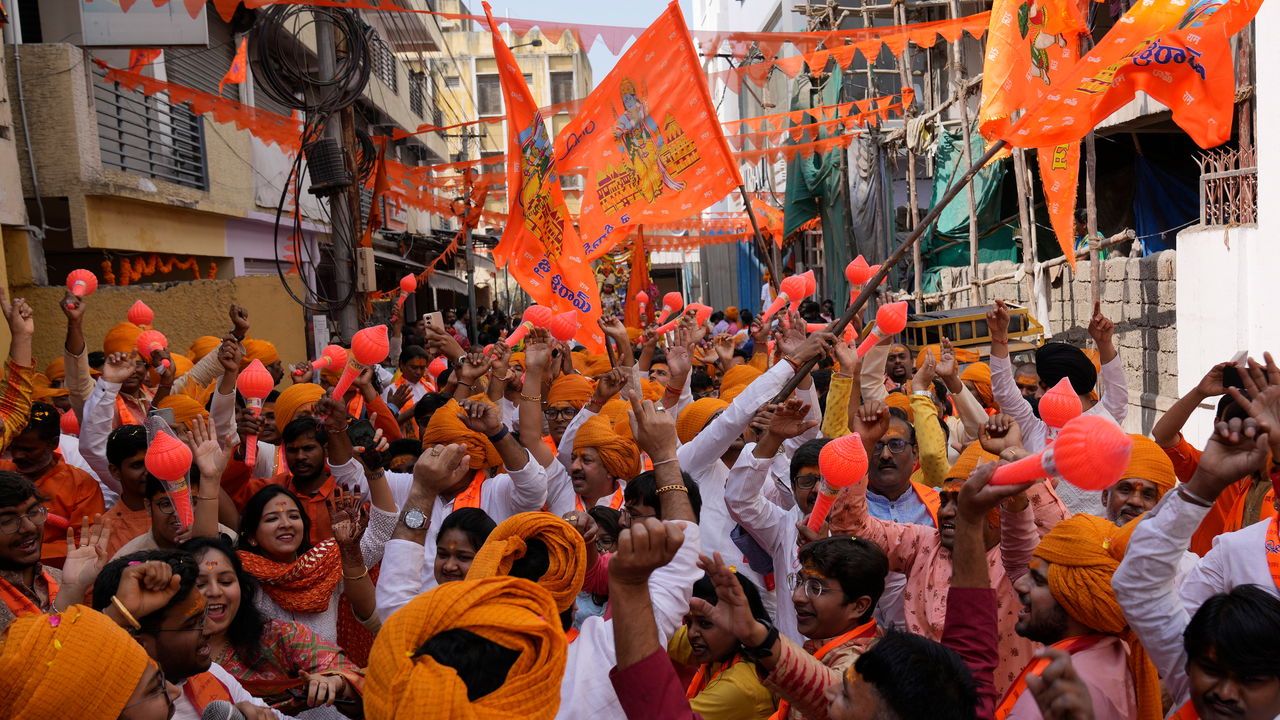
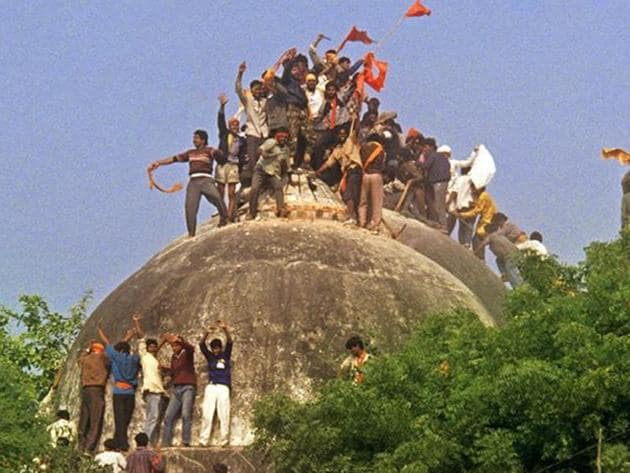
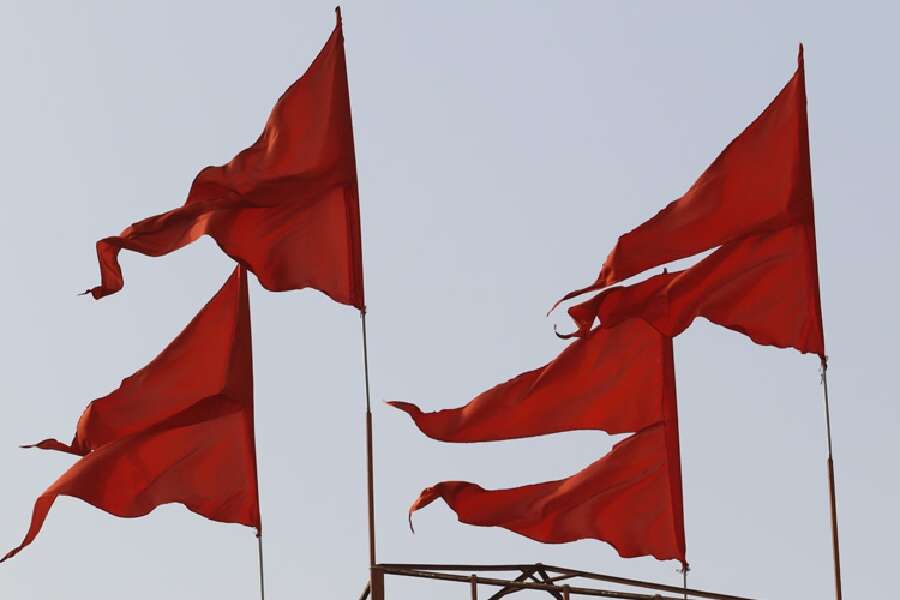
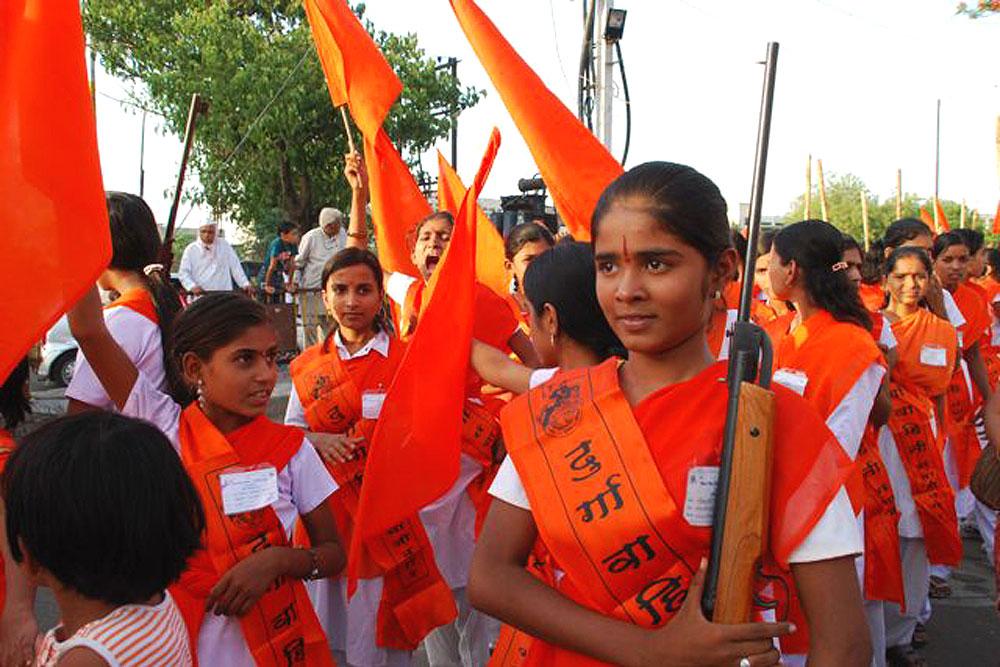
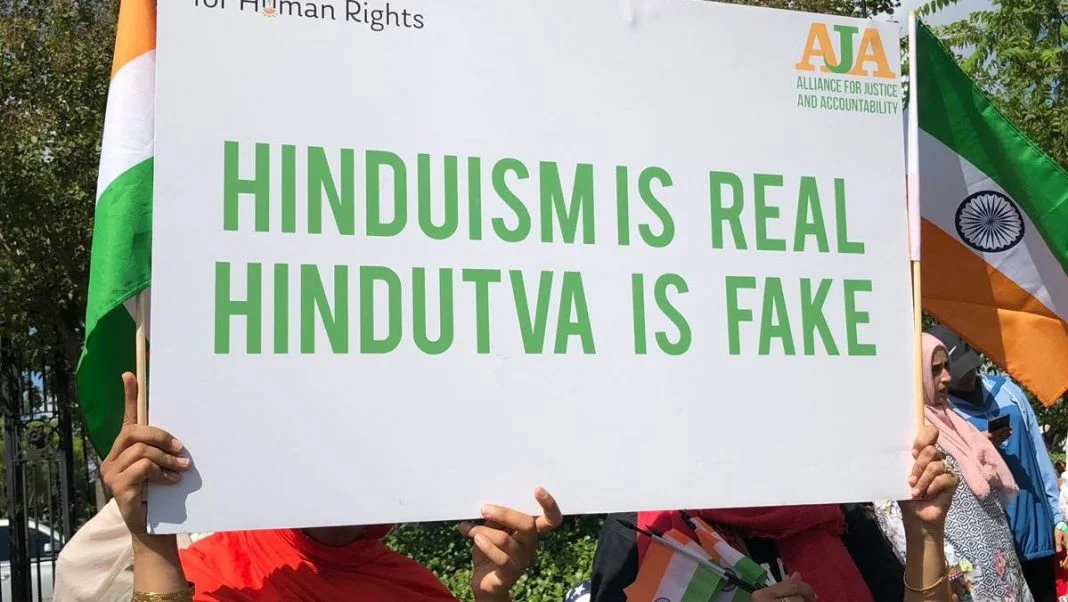




I don’t understand why is the problem with being Hinduism why Feminist group is so much hate against Hinduism and also why these goons (feminists)are so much crying for baber masjid and many things like NCERT is now launching the Hindu chapters like maha Rana pratap,Rani Lakshmai bai ,and Shivaji maharaj all they know are scared for themselves because the truth comes out nd feminists scared ,they should know wht happened to them in past history how Muslims killed innocent people nd how they took Hindu women’s into conversion where were your girls so called feminists when Pakistan took Hindu girls into conversion where were your group it means u guys care about Muslims only nd others
Well said sister. These are all brainwashed pupil of leftists institutions trying to further the propaganda of their masters under the garb of feminism.. All there “feminist” activities apply to certain religions while giving equal or worse issues in other faiths a miss..
I am actually mad at the BJP government for not correcting our history already despite being in power for 10+ years.. Hope to see a revision in coming years from the super flawed history written by left historians, not to mention sponsored by the first few education ministers all of whom happened to be Muslims for some reason.
This is one prime example of their influence.
https://www.timesnownews.com/india/article/aurangazeb-gave-grants-to-rebuild-temples-ncert-has-no-info-to-back-its-textbook-claims-reveals-rti-query/707273
Hope, we have accurate history of Mughals and sacrifices of rulers such as Lalitaditya Muktapida, Nagbhat, Raja Chach and his son Raja Dahir and his contemporaries (don’t remember their name sadly), Bappa Rawal, the Gujarat Solanki Rajput rulers of 9/10th century, Sangramaraja, Trilochanpala, Raja Hemu, Lachit Borpukan and other Ahoms.. the initial education ministers and leftist historians ruined our past glory, replaced that with a defeated mindset but sadly what has BJP done to fix this all these years.. read about battle of Salher, Pratapgad, Pavankhind, Sinhgad and Panhala, battle of Kolhapur 1659, Umberkhind and battle of Wai.. Marathas won so many battles against numerically superior Mughals but there is hardly any mention or appreciation which is sad in a country of 80% Hindus! There is a reason why India has been able to keep its identity unlike the nations to its west all of which fell to Islamic conquest and converted.. It is not an accident and must be celebrated.
I think feminism groups do such much more propaganda and guiding people hate against Hindu
https://www.instagram.com/reel/C6x8QiMyhFB/?igsh=b3JreTIzODZmczlx
This is a very minor thing and I am not even talking about the hate in the minds of children as one saw in Kerala. They will never comment over these mindset, never ever.. And that’s highly problematic